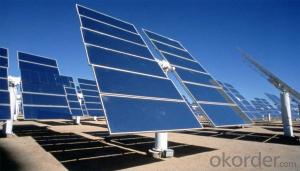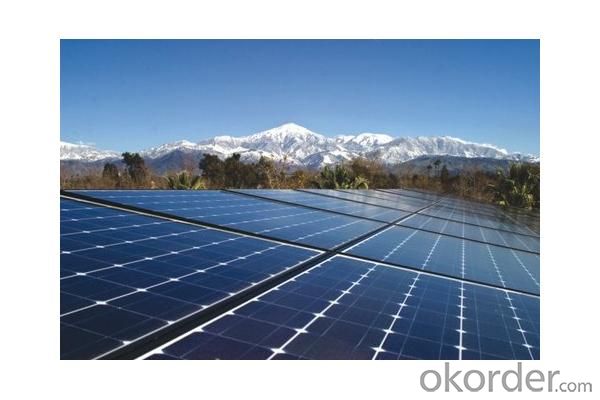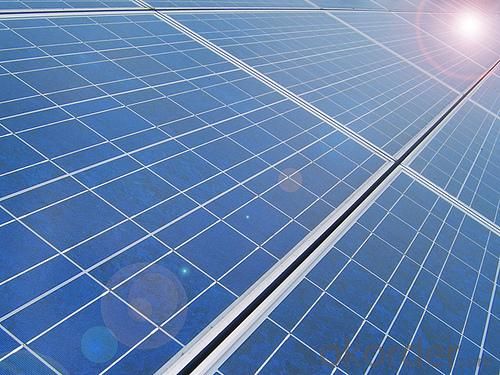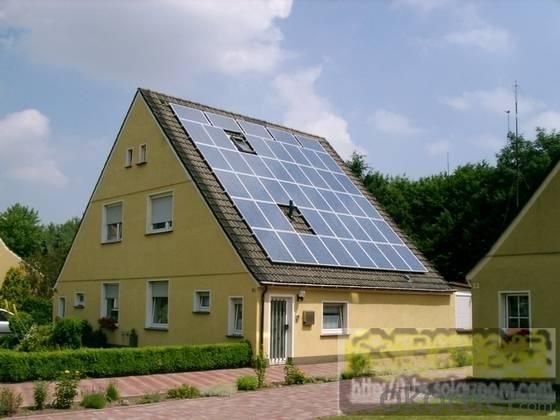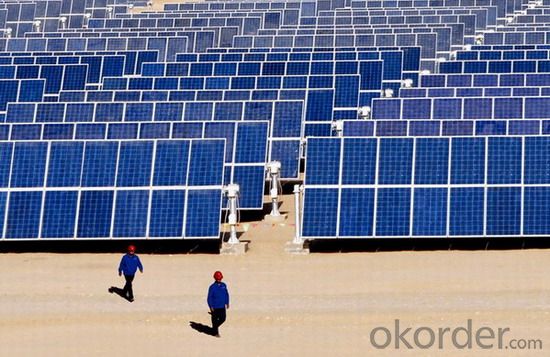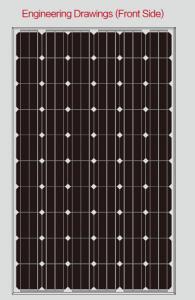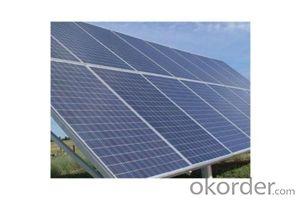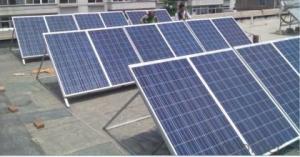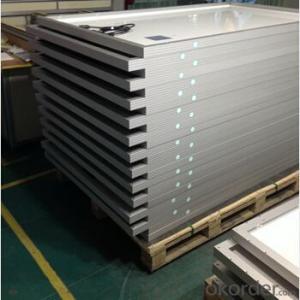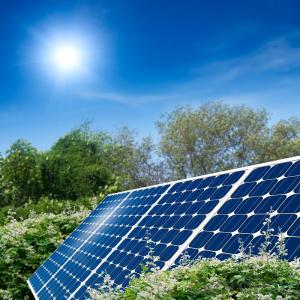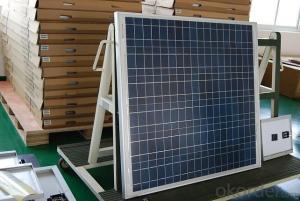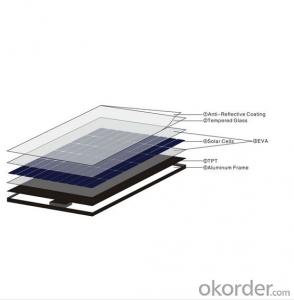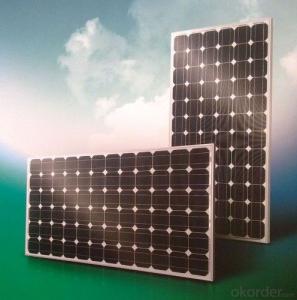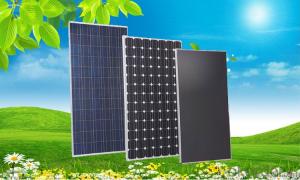Lightweight Solar Panels for Mobile Homes - CNBM Solar Monocrystalline 156 Series 50W
- Loading Port:
- Shanghai
- Payment Terms:
- TT OR LC
- Min Order Qty:
- 1000 watt
- Supply Capability:
- 20000000 watt/month
OKorder Service Pledge
OKorder Financial Service
You Might Also Like
Specification
Materials
Silicon
Guarantee
12 yrs free from defects in materials and workmanship
No less than 90% within 10yrs and no less than 80% within 25yrs
TUV(IEC61215&IEC61730), CE, UL
Application
Photovoltaic/ solar/ green energy/ energy saving
Descriptions
1.High efficiency crystalline silicon solar cell. Even if under the weak light, the solar module can produce maximum power output.
2.Tempered glass (toughened glass): Anti-reflecting coating and high transmission rate glass increase the power output and mechanical strength of solar module.
3. EVA and TPT: Using high quality EVA and TPT to prevent destroying and water.
4. AI frame: Without screw, rner connection. 6 holes on the frame can be installed easily.
5. Junction box: Multi function junction box with water proof.
6. Long lifetime: ≥25 years; Less power decrease.
7. Good performance of preventing from atrocious weather such as wind and hails.
8. Resisting moisture and etching effectively, not effected by geology.
9. The certificate issued by international authority: UL, TUV, IEC, CE.
Packaging Details
26pcs/pallet, 28pallets/ 40HQ
Our solar panels are packed in cartons, and then pallet.
Shipping by sea or by air are both ok, it up to customer’s chose.
We’d like to inquiry the freight cost for customer after be informed exact quantity and destination address.
CNBM International Corporation is a professional solar panel manufacturer in China for CNBM brand . Silicon panel ( silicon module), as our main product, has high quality and good service. Our products are very popular in Europe, Australia, England, Middle East, Mexico, Argentina, Chili, Singapore and Africa.Furthermore, our products have gained international authorized certificates like TUV, UL and CE.
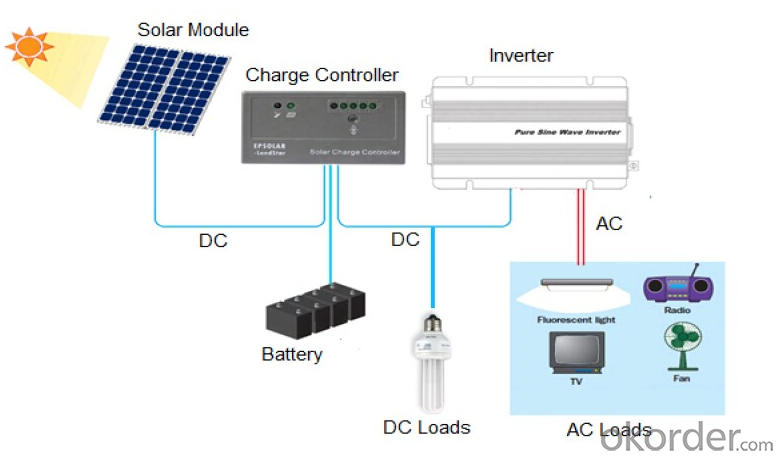
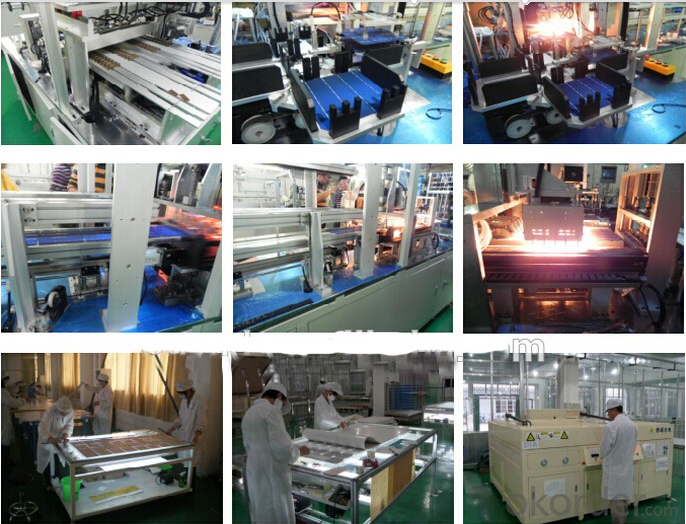

Why Choose Us
A. Professional Manufacturers , Strict quality control & power classification Silicon Solar PV Module
B. 100% A grade solar cell with Positive tolerance power range.
C. High Conversion Efficiency , High transmission rate , low iron tempered Anti-reflecting/coating film 3.2mm glass
D. Anti-aging & high visosity EVA
E. high frame resistant & Double-sided fluorine TPT
F. Anodized aluminum alloy high thickness frame
G. 3 or 6 bypass diodes , 90mm 4m2 cable , MC4 connectors & waterproof junction box
H. Long life, Easy installation, high wind & hail impact resistance
I. Be resistant to atmospheric exposure & effects of delamination
J. ISO9001:2008/ISO14001:2004/OHSAS18001:2007/ CE /TUV/CEC/ IEC/EN61215 IEC/EN61730/CHUBB INSURANCE
K. 10Years Manufacturing Quality Warranty , 10Years 90% Power output Warranty, 25Years 80% Power output Warranty
- Q: I know that one LED can't power a solar panel. I have found 40 kmcd LED's on OKorder. I know that several of them (28 totale each one with a 470 ohm resistor all at 2 VDC) can show a reflection on a wall in daylight 60 feet away..
- The 40 kmcd rating is a measure of luminous intensity (how bright it looks), not a measure of output power of the visible light. We can estimate the performance of your proposed system as follows: The LEDs on OKorder each are rated about 20mA maximum at about 3.2V, or 64mW (milliwatts). If you use 470 ohm resistors connected to 2VDC, the current that will flow, per LED, will be about: (2V-3.2V)/470ohm = 0.0872A = 8.72mA The power taken from the 2VDC power source will be: P2v = 2V x 8.72mA = 224.6mW (per LED) The power input to each LED will be about: Pled = 3.2V x 8.72mA = 59.9mW (per LED) The LED has a luminous efficiency that can range from about 4.2% to 22%. This efficiency is the ratio of the amount of visible light output (in watts) divided by the input power (in watts). The OKorder listing doesn't identify the output power level (either in watts or in lumens), so let's assume a 0% efficiency. The LED output power will be about: Pout = 59.9mW x 0% = 5.99mW (per LED) A solar panel converts visible light to electrical energy with an efficiency that ranges say about 6% to 8%. Suppose the solar panel efficiency is 2%. Then the electrical power output by the panel will be about : Pe = 5.99mW x 2% = 0.72mW (per LED) If you shine 00 LEDs on the panel, the output electrical power will be 00 times that amount: Pe00 = 0.72mW/LED x 00 LED = 72mW <===ANSWER The power taken from your 2V source will be about: P2V00 = 224.6mW/LED x 00 LED = 22460mW = 22.46W The system efficiency will be about: Eff = solar output / battery input = Pe00 / P2V00 = 72mW / 22460mW x 00% = 0.32% SUMMARY: If you shine 00 of the LEDs on the panel, you will capture back about 0.32% of the energy expended, or regain about 72mW.
- Q: How many kilowatts? Would it be enough to power my electric heat?Does one panel cost about $2000.?
- Solar Panels have a large range of prices. You can get a 0W panel for approx. $00 to 200W solar panels at $2000 and beyond. You would want to figure out how much electric heat you use. Then from there, figure out how many solar panels it would take to compensate that. If you need help figuring this out, I would suggest reading a Solar Panel How to Guide and/or looking at a Solar Panel Forum. Best of luck to you!
- Q: ok im going off grid and will have my fridge and stove running on propane but im trying to figure out that at night i want to be able to run my 32 inch lcd tv a internet modem a playstation 3 and 2 laptops and a light or 2 and maybe a floor fan through solar power and i would like to be able run my tv and stuff up to 8 hours in to the night and so i just want to know how many batterys and solar panels i need or how many watts system do i need im running all this on one outlet now at home so i know its under 20 amps and i think i use about 000 watts an hour im not sure so thats why im asking i really need help with this i hope i dont need a $5,000 system thats crazy im only wanting to spend like a $000 please dont explain math figures or a bunch of complicated garbage to me i just want a straight answer on what i need to do to be able to do this thank you!
- My guess is that you might discover everything concerning solar power at www.okorder .
- Q: Are there any fire risks associated with solar panels?
- Yes, there are fire risks associated with solar panels, albeit they are extremely rare. These risks can occur due to factors such as faulty installation, damaged wiring, or issues with the electrical components. However, industry standards and regulations have significantly improved over time, ensuring safer installations. Additionally, regular maintenance and inspections can help mitigate these risks and ensure the safe operation of solar panel systems.
- Q: Can solar panels be used to power a farm?
- Yes, solar panels can be used to power a farm. By harnessing the power of the sun, solar panels can generate electricity that can be used to run various farm operations such as irrigation systems, grain dryers, electric fencing, and even power agricultural machinery. This renewable energy source not only reduces reliance on fossil fuels but also helps farmers save on energy costs while promoting sustainability.
- Q: Hi. I hate the energy company. I hate my carbon footprint. I will likely move to a piece of property and put a decent-sized mobile home on it. I want solar panels so I can get my own power. I live in the state of Wisconsin. How much would this approximately cost? Would I need certain permits? How many panels can be used? Thanks for helping!
- My guess is that you will pick up everything concerning solar power at www.okorder .
- Q: quot;Does it take more energy to produce a solar panel than what the same solar panel can generate in its useful lifetime?quot;
- Thor is right and wrong. Solar panel will produce more than they take to make. My solar panels only have a 0 year estimated useful life. They may actually last longer, but with time they lose efficiency. Here in Phoenix where the sun shines all the time, a decent solar system you purchase and pay to have installed will pay back the original investment in 5-20 years. If you are a handyman and can install it yourself it will pay back sooner. Solar is a great system for reducing CO2 pollution, but until grid power rates increase a lot, it is still not very cost effective in most areas. It is also a myth that anyone can just install a solar system and get off grid power. Most people could not afford it, and most people would not like not having heat or air. Any system that normal people could afford could not supply anywhere near enough power for heating or air conditioning.
- Q: Can solar panels be installed on multi-story buildings?
- Yes, solar panels can be installed on multi-story buildings. In fact, multi-story buildings often provide ample space on rooftops for solar panel installation.
- Q: What makes them stop working after a while?
- You can search on solar panel failure mechanisms for scholarly works. Amorphous silicon thin-film panels go through an annealing, and power drops off after a couple years. This includes most of those flexible rubber mat type panels. That's why those are not used on serious installations. Serious panels intended for rooftop service generally come with a 25-year warranty, suggesting that the technology is more reliable than your washer, dryer, TV, computer, dishwasher, or water heater. One brand of panel had trouble about 0 years ago, but the manufacturer replaced all that were turned in, even paying shipping both ways. It was a problem with that particular model, not the technology. Our polysilicon panels have been on the roof for 3 years, now, and I've seen no sign of wear, yet, either electrically or mechanically.
Send your message to us
Lightweight Solar Panels for Mobile Homes - CNBM Solar Monocrystalline 156 Series 50W
- Loading Port:
- Shanghai
- Payment Terms:
- TT OR LC
- Min Order Qty:
- 1000 watt
- Supply Capability:
- 20000000 watt/month
OKorder Service Pledge
OKorder Financial Service
Similar products
Hot products
Hot Searches
